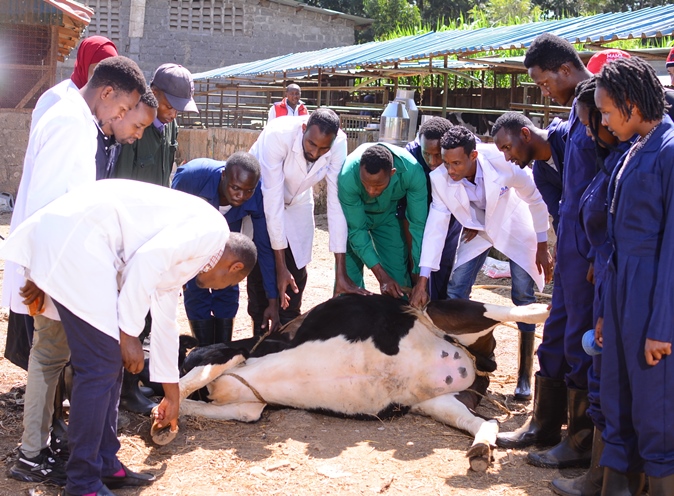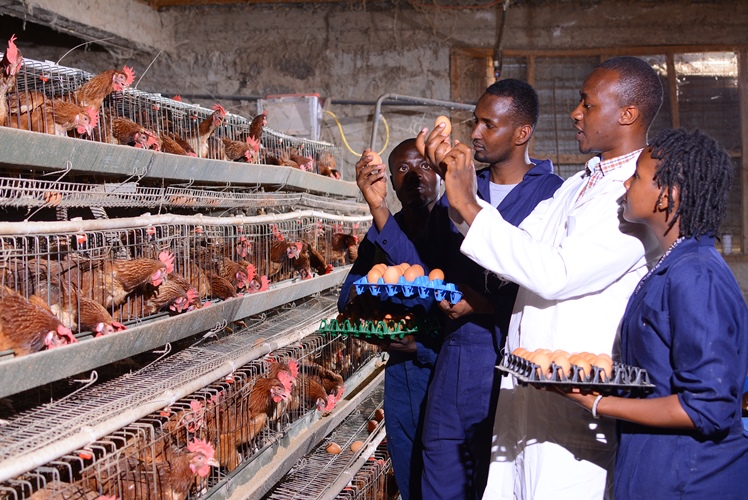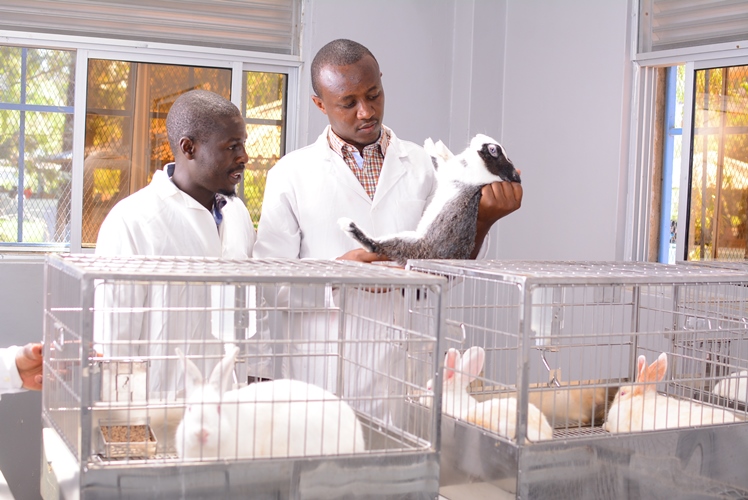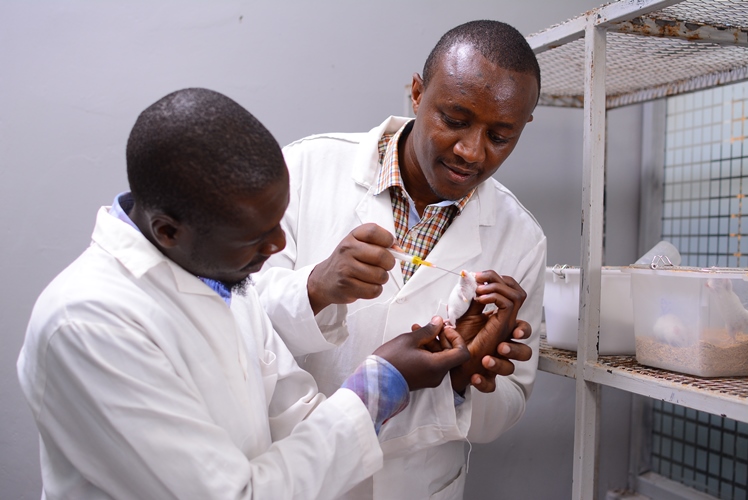The Mount Kenya University (MKU) Department of Animal Health and Production was started in 2011. It is based at MKU Nakuru Campus. The founding of the Department was in response to a recorded sharp decrease in harvest yields for small holder farmers in Rift Valley, with the university eager to transfer knowledge to farmers.
The decrease had been occasioned by climate change, decrease in fertilizer application, and aftershocks of the 2008 post-election violence (ACDI/VOCA, 2009). Rift Valley is traditionally, Kenya’s bread basket.
The Department started with a demonstration farm at Nakuru Agricultural Society of Kenya showground. At the farm, farmers learnt how to increase yields, mitigate the effects of climate change, and reduce post-harvest losses, among others. The Department now offers Bachelors, Diploma and Certificate in Animal Health, Agriculture and Production programs.
The first intake had 32 students: 12 certificate and 20 Diploma. Since then, it has grown in terms of student numbers, staff establishment and physical resources. The Department was merged with Thika campus’ Department of Animal health in October, 2021. It has frequently been inspected by the Kenya Veterinary Board, with impeccable results.
The demonstration farm is now set on five acres, and has 12 dairy cows, 16 beef cows, 32 sheep and goats, three donkeys, 500 chicken, a fish pond and green houses.
The Department is headed by Dr Simon Migwi.
Animal Health Training
Mount Kenya University Nakuru Campus became the centre of excellence for training agriculture and animal health & production course.
MKU department of animal health joins Caritas Nairobi on dairying programme
Mount Kenya University Department of Animal Health in the School of Pure & Applied Sciences has joined Caritas Nairobi, the social development arm of Catholic Church, in a collaborative engagement with the Dairy Farmers in Kiambu County. The two organizations shall involve MKU animal health students in attachments while their lecturers will be involved in monitoring and evaluation (M&E) activities.
The Caritas Nairobi has imported improved breeds of dairy cows from Italy and do provide them to farmers at the county. According to Sr. Mary Mbaci of Caritas Nairobi, when she paid a courtesy call to MKU’s Vice Chancellor, Prof. Stanley Waudo, the collaboration will involve entire value chain in milk production from animal feeds to milk processing. Other schools / departments in MKU that are to be enjoined in this programme are nutrition and dietetics, Graduate Enterprise Academy and the School of Business.
Nakuru Campus has established a demonstration farm at ASK grounds in Nakuru. The five-acre farm is used in training students undertaking courses in Animal Health and Production. It is also open to the public, and currently, some farmers are using it to acquire agricultural extension training.
The Campus Deputy Director in charge of Administration and Planning Alfred Owino says they have collaborated with Gitonga Farm to ensure the training offered is the best.
The farm has several units namely Dairy Goat, Cow, Rabbitry, Poultry, Aquaculture (fisheries), and Fodder. “We are also partnering with Kenya Seeds in order to bring expertise in seed technology particularly fodder,” says Mr. Owino. “We are in the process of establishing a greenhouse, also for purposes of training.”

















